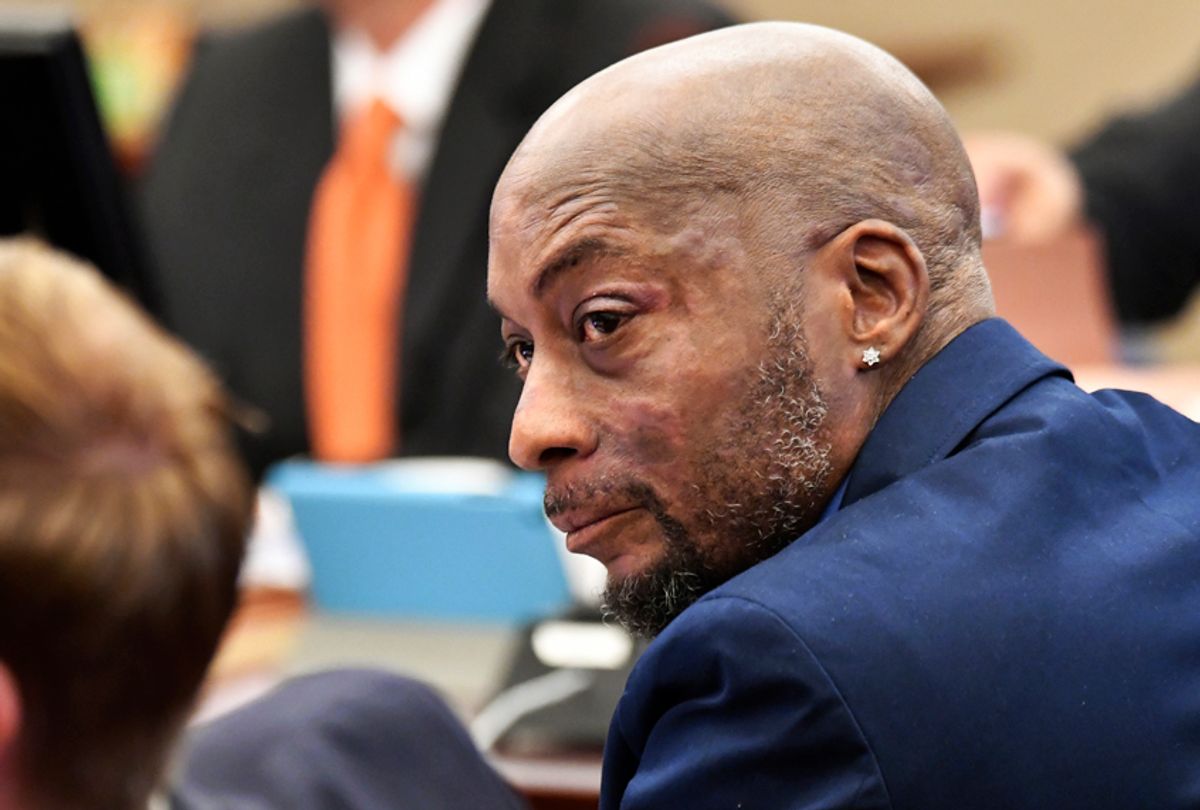An accident on the job for DeWayne “Lee” Johnson of Vallejo, California, has cost him his health, he says — and possibly his life.
As a Benicia Valley School District groundskeeper, where he worked from 2012 to 2016, Johnson was drenched in the herbicide Roundup, manufactured by Monsanto, when spraying gear failed to work properly — twice. Today, doctors tell him he may only have a few months to live.
"I figured if it could kill weeds, it could kill me," Johnson said. "I took it seriously. That's why I wore anything I could to protect myself."
In 2014, the 46-year-old father of three was diagnosed with non-Hodgkins lymphoma, a cancer that affects white blood cells, and occurs when the body produces too many abnormal lymphocytes. It has been widely speculated that the herbicide has a potentially carcinogenic effect, thanks to an active ingredient in it called glyphosate. However, conclusions drawn about its dangers have not been unanimous. The World Health Organization deemed glyphosate as “probably carcinogenic to humans” in 2015, while in 2017, the U.S. Environmental Protection Agency disagreed.
For the last month, Johnson has stood before the San Francisco Superior Court arguing that not only is the chemical responsible for his cancer, but also that Monsanto—which was recently acquired by the parent company Bayer in June—has been aware of its carcinogenic effect, but has covered it up for decades. As of Thursday afternoon, jury deliberations, which began on Wednesday, were still in session.
According to CBS, the case is expected to conclude on Friday, Aug. 10, when Johnson is scheduled for his third round of chemotherapy.
Johnson’s lawyer R. Brent Wisner has asked jurors to award more than $39 million in compensatory damages and $373 million in punitive damages. Wisner remaked in his opening statement that there are “mountains of data” supporting the claim that glyphosate causes non-Hodgkin's lymphoma, and that Monsanto has taken actions such as paying scientists to ghostwrite research for the company.
“Monsanto has specifically gone out of its way to bully and to fight independent researchers,” Wisner said as he presented internal Monsanto emails at the trial. “They fought science.”
Sheldon Krimsky, a Lenore Stern Professor of Humanities & Social Sciences at Tufts University, worked with journalist Carey Gillam to review the court-released discovery documents from the case and found evidence to suggest corporate malfeasance. Their research was published in The Journal of Public Health Policy.
“What we found was that their business model was involved with manipulating science,” Krimsky told Salon. “As soon as someone writes a paper that opposed their work then they would contract with a scientist to write another paper that shows they are correct.”
“They aren’t interested in the truth in their products, only about making money,” he added.
The EPA has based some of its opinion, which have influenced regulations, on glyphosate based on research provided by Monsanto.
Krimsky said this is called “the Funding Effect,” which refers to when a scientific study is more likely to be in favor of the study’s sponsor.
“American regulatory agencies allow data from the companies who do the studies,” he explained. “When corporations fund research, there is a great likelihood that the result will come out in the benefits of the corporation.”
George Lombardi, an attorney for Monsanto, has vehemently refuted claims that the research indicates anything other than there is no link to the chemical and cancer.
“The message of 40 years of scientific studies is clear: this cancer is not caused by glyphosate,” Monsanto’s lawyer George Lombardi said in the trial, according to Reuters.
Nathan Donley, a senior scientist at the Center for Biological Diversity, tells Salon that this case is controversial because the data has not been so cut and dry.
“On one end of the spectrum you have very potent carcinogens like asbestos, and tobacco smoke, that affect a broad swath of people, on the other hand you have very innocuous things that would never give you cancer even if you drank liters a day,” he explained. “In-between those, you have everything else, and a mild-to-moderate carcinogen such as glyphosate can be terribly difficult to pin down.”
“Will glyphosate cause non-Hodgkins lymphoma to everyone exposed? No, but that doesn’t mean certain people aren’t at a higher risk,” he said. “Those who have been affected should be compensated and those responsible should be held accountable.”
Donley added that this case raises awareness about the role of U.S. government regulatory agencies like the EPA.
“I think that people like to believe that regulatory agencies really have our best interest at heart, but ultimately I would argue they are political agencies and they are run by political appointees,” he said.
If Johnson wins, according to Curtis Weyant, the content director of ConsumerSafety.org, it could open the door to more people coming forward. More than 450 lawsuits are pending against Monsanto Co. in U.S. District Court in San Francisco, according to the non-profit U.S. Right to Know.
“Greater awareness of the potential link between Roundup and cancer could certainly lead to more people coming forward,” Weyant told Salon. “In addition, public pressure makes it more likely that Monsanto could take the product off the market completely.”
Nicole Stock contributed reporting to this story.
Today's hottest topics
Check out the latest stories and most recent guests on SalonTV.
TRENDING



Shares